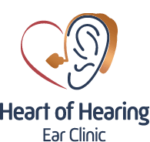Can Hearing Loss Affect Your Memory?
The short answer is yes, hearing loss can have a significant impact on your memory. What you hear in conversation, and the sounds out in the world, help you to form solid and meaningful memories. When your ability to hear is impeded, it can affect your health in multiple ways, including your memory.
How are hearing and memory related?
Your auditory system, from your ear to your brain, is responsible for capturing sounds, processing the information, and committing it to your memory. Sound waves move through the ear, get picked up by hair cells in your inner ear, and signals are sent through your auditory nerve pathways for your brain to decipher. If that process is interrupted for any reason, it can impact your brain’s ability to store information as memory.
How does hearing loss lead to memory loss?
- Cognitive Impairment: When your hearing is impaired, your brain works harder to try to understand the sounds you’re hearing or piece together what sounds you are missing. This takes away energy from the other efforts your brain is responsible for, like committing information to memory.
- Reduced Ability to Concentrate: One effect of hearing loss can be the reduced ability to concentrate. You spend a lot of your efforts trying to hear, or focusing on the fact that you cannot hear, rather than absorbing and understanding the information.
- A Decline in Mental Health: Left untreated, hearing loss can be stressful and lead you to experience feelings of depression and anxiety. You may feel yourself begin to withdraw from social settings, which can lead to loneliness and isolation. Depression has been linked to difficulties with cognition and short-term memory loss.
How can you protect your hearing and memory?
You can protect yourself from cognitive impairment due to hearing loss by being proactive about preserving your hearing. Avoid noisy crowds and activities, and when you can’t, wear hearing protection like earplugs or over-ear covers.
It’s also important to establish annual visits with both a primary care physician and a hearing healthcare provider, so you can address any issues or symptoms right away. A baseline hearing test can help you determine any existing hearing loss and measure any decline in hearing for the future.
If you are experiencing hearing loss and are worried about its impact on your memory, hearing aids can be a helpful solution. The right device, selected by your hearing healthcare provider, can relieve some of the stress and anxiety associated with hearing loss. It can also help you feel more connected to the world around you and create stronger memories.
Looking for a solution to your hearing loss? Call our office today to schedule an appointment so we can help you hear better.

